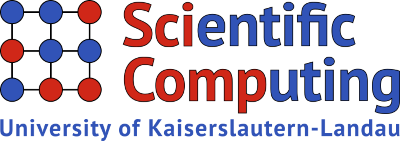Date and Place: Thursdays and hybrid (live in 32-349/online via Zoom). For detailed dates see below!
Content
In the Scientific Computing Seminar we host talks of guests and members of the SciComp team as well as students of mathematics, computer science and engineering. Everybody interested in the topics is welcome.
List of Talks
Event Information:
-
Thu20Jun2024
SC Seminar: Max Aehle
11:45Hybrid (Room 32-349 and via Zoom)
Max Aehle, RPTU Kaiserslautern-Landau
Title: Algorithmic Derivatives of Electromagnetic Shower Simulations
Abstract:
Applying algorithmic differentiation to particle simulations like Geant4 would allow us to evaluate derivatives of simulation outputs with respect to inputs, e.g. of the mean energy depositions in calorimeter layers with respect to geometry parameters. Such derivatives could become instrumental for a number of application like detector optimization or parameter fitting in HEP. However, besides the technical challenge of applying AD to over one million lines of code, there is a number of mathematical/statistical challenges: Does the high density of discontinuities, induced for example by ‘if’ and ‘while’ statements in the code, cause problems in the derivative computation? Are we allowed to treat random numbers like constants with respect to AD? How large is the error when the mean pathwise derivative is evaluated as a proxy for the actual derivative of expectancies computed by Monte-Carlo algorithms?
To approach these questions, we have applied the operator-overloading AD tool CoDiPack to the compact G4HepEm/HepEmShow package for the simulation of electromagnetic showers in a simple sampling calorimeter. After disabling multiple scattering in the simulation, our pathwise gradient estimator approximates derivatives of energy depositions with only a small bias, which proved unproblematic in a simple optimization study. In this talk, we will report on our methodology and give an overview on our findings.
How to join online
You can join online via Zoom, using the following link:
https://uni-kl-de.zoom.us/j/63123116305?pwd=Yko3WU9ZblpGR3lGUkVTV1kzMCtUUT09
